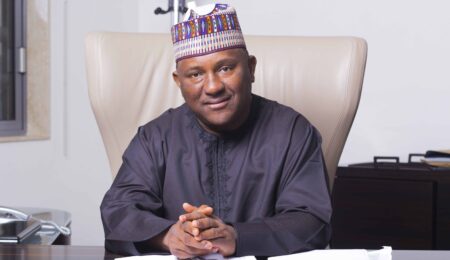Japa Syndrome in Nigeria dates back more than three decades ago when the country began to record an increase in migration of its health workers to Europe and America. But the term Japa wasn’t associated with migration until early 2020 when the country gradually started to experience partial, and eventually, full-blown migration of talents, especially young people in tech and health workers. Unemployment, underemployment and poor living conditions were some key issues that triggered their exodus.
In 2021, the migration rate in Nigeria stood at -0.29 per 1,000 population, according to a report by Statista. This meant that the number of people leaving Nigeria was higher than that of people entering the country. Between 2000 and 2021, the migration balance stayed negative. But as more people rush out of the country, “people are also rushing in. And that’s because they see the opportunities that many of us are not seeing. We see the problems. But what we don’t know is that each of those problems is an opportunity,” said Dr Henrietta Onwuegbuzie, an Associate Professor of Entrepreneurship at Lagos Business School.
She said this during a speech at the recently held Pan-African Youth Innovation Forum organised by Co-Creation Hub, which hosted Bill Gates and other prominent speakers, including Prof Chris Ogbechie, the Dean of Lagos Business School. According to Onwuegbuzie, every problem is a potentially profitable business opportunity. However, “impact drive profit. When businesses provide real solutions and cater to a real need, people would be willing to pay for the solutions for their problems.”
The problem in the Nigerian market is multi-dimensional. Its economic potential is constrained by structural issues, including inadequate infrastructure, tariff and non-tariff barriers to trade, obstacles to investment, lack of confidence in currency valuation, and limited foreign exchange capacity, states a report by United States Agency for International Development. But this is not just a Nigerian problem. It is a shared problem across many emerging economies in sub-Saharan Africa and the globe.
Fortunately, amid these challenges, young people in Nigeria (and Africa) are beginning to realise that entrepreneurship could enable them to build a sustainable future. They are moving with innovative ideas across sectors and no longer waiting for government intervention.
“We need the government to do some things, but we cannot wait for them. The change we expect often comes more from the office of the citizen than from the office of the President,” she said. “For instance, if Mandela had waited for apartheid to just go away in South Africa, perhaps apartheid would still be on. Apartheid changed because the people -led by Mandela- moved. That’s the same way Nigeria will change because the young generation is moving.”
Nigerian entrepreneurs need to be purpose-driven to create an impactful, profitable, and sustainable business in a problematic economy. People are often too focused on making money than solving a problem; thus why many businesses fail. Onwuegbuzie encourages entrepreneurs to “offer genuine and authentic value. No matter how slow your rise is, it is sure, and it will come.”





